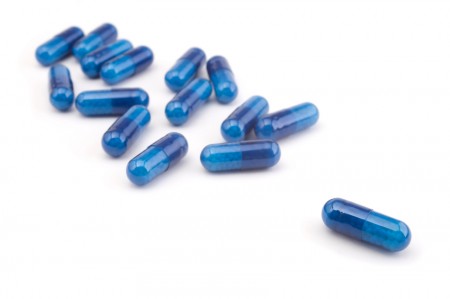Methylene Blue May Help Bipolar Depression
 We have previously reported on the research by Martin Alda and colleagues that the chemical compound methylene blue had positive effects in patients with bipolar depression. The research was published in the British Journal of Psychiatry in 2016.
We have previously reported on the research by Martin Alda and colleagues that the chemical compound methylene blue had positive effects in patients with bipolar depression. The research was published in the British Journal of Psychiatry in 2016.
Now a new article by Ashley M. Feen and colleagues in the Journal of Neurotrauma reports that methylene blue has an antidepressant-like effect in mice with traumatic brain injury (TBI). Methylene blue reduced inflammation and microglia activation in the animals. Methylene blue reduced levels of the pro-inflammatory cytokine Il-1b and increased levels of the anti-inflammatory cytokine Il-10.
These findings are of particular interest as many patients with classical depression (and no brain injury) have abnormal levels of these inflammatory markers. It remains to be seen whether methylene blue is more helpful in those patients with elevated inflammatory markers and if levels of the markers can predict treatment response or not.
Methylene blue causes urine to turn blue, so low doses of the compound are used as a placebo. Alda and colleagues reported that the active dose 195mg reduced depression and anxiety significantly more than the placebo dose (15mg) in a 13-week crossover study. In that study, methylene blue was added to lamotrigine which had not had a complete enough effect.
In a 1986 study by G.J. Naylor and colleagues in the journal Biological Psychiatry, patients were treated with either 15mg/day or 300mg/day of methylene blue for one year and crossed over to the other dose in the second year. Participants had significantly less depression during the year of taking the active 300mg/day dose.
The FDA has issued a warning about the danger of a serotonin syndrome if methylene blue is combined with serotonin active agents (presumably because it inhibits MAO-A). Symptoms of the serotonin syndrome can include lethargy, confusion, delirium, agitation, aggression, decreased alertness, and coma. Neurological symptoms, such as jerky muscle contractions, loss of speech, muscle tension, and seizures; or autonomic symptoms, such as fever and elevated blood pressure, are also common. Patients should call their doctor if they are taking a serotonergic psychiatric medication and develop any of the above symptoms.
N-acetylcysteine Improves Blast-Induced Mild Traumatic Brain Injury
Michael E. Hoffer et al. reported in the journal PLosOne in 2013 that veterans with blast-induced mild traumatic brain injury had a better acute outcome when they were given the antioxidant N-acetylcysteine (NAC) within the first 24 hours after the trauma versus when they were given placebo during the same period. Forty-two percent of those receiving placebo had a good acute outcome, while 86% of those receiving N-acetylcysteine had a good acute outcome. Memory loss, sleep disturbance, dizziness, and headaches all improved more in the N-acetylcysteine group. NAC’s benefits diminished when it was given 3 or 7 days after the trauma.
Editor’s Note: These data add to the growing list of neuropsychiatric syndromes in which NAC has shown efficacy. These include schizophrenia, bipolar depression, unipolar depression, cocaine and heroin addiction, gambling addiction, trichotillomania (compulsive hair-pulling), obsessive-compulsive disorder (as an adjunctive treatment to SSRIs), and improvement in irritability and stereotypy (repetitive behaviors) in children with autism.
Given what appears so far to be a relatively benign side effects profile for NAC, and the potential for severe consequences from traumatic brain injury (TBI), a case for wider use of NAC (for example in emergency rooms) might be made.
The mechanisms of action of NAC in different syndromes remains to be clarified. Researcher Michael Berk used NAC in schizophrenia and bipolar disorder and more recently in unipolar depression because it has antioxidant properties. Peter Kalivas found that NAC can normalize glutamate in the reward area of the brain through actions on the cystine-glutamate exchanger, and it also increases clearance of glutamate by increasing the glutamate transporter in glial cells. NAC decreases the amount of cued glutamate release in a part of the brain called the nucleus accumbens, which may be helpful in recovery from pathological habits. NAC also has anti-inflammatory and perhaps neuroprotective effects, and it increases brain-derived neurotrophic factor (BDNF), which protects neurons and is important for long-term learning and memory. Which of these many actions is important in the treatment of PTSD is not yet known.


